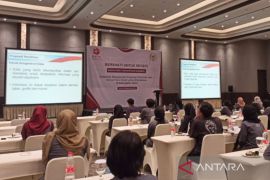"The World Contraception Day, which is commemorated every September 26, needs to be used to intensify the education of the family planning program," BRIN's Public Health Researcher Masdalina Pane said here on Sunday.
According to Pane, family planning education for society, which campaigns for the importance of using contraceptives, has been carried out well by the government.
However, she said, the efforts need to be strengthened to support population control programs and intervals between pregnancies.
Pane, who is also the Professional Development Head of the Indonesian Epidemiology Association (PAEI), added that efforts to strengthen the family planning program education are expected to support the decline of the total fertility rate in Indonesia.
Based on the 2021 family data record, Indonesia's total fertility rate fell to 2.24, from 2.4 in 2017.
"Population control through the family planning program is very successful. However, the COVID-19 pandemic may have affected the total birth rate and access to birth control, considering that there are many health facilities that have limited (patients') visits," she explained.
Thus, she stated, public awareness of birth control needs to be enhanced through family planning program education.
"Education to the society is expected to target younger groups or those who get married early," she said.
Based on data from the National Population and Family Planning Agency (BKKBN), the ratio of people who marry under 18 years old is 20 out of one thousand marriages.
Moreover, she added that birth control programs and contraceptives can support maternal health, and mothers' reproduction health.
"Because giving birth and nursing many children in short intervals can cause fatigue, thus declining life quality," she said.
Related news: Likelihood of stunting detectable before birth: BKKBN
Related news: Fall in contraceptive use likely to raise birth rate: BKKBN
Translator: Wuryanti P, Kenzu T
Editor: Rahmad Nasution
Copyright © ANTARA 2022












